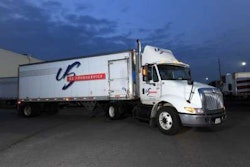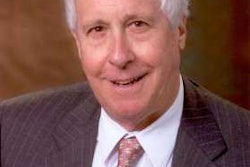Ryder System today, July 23, reported net earnings of $22.9 million for the three-month period ended June 30 compared with $62.9 million in the year-earlier period, including a $1.0 million charge for restructuring and other items. Earnings in the year-earlier period included an after-tax charge of $6.8 million in the company’s Supply Chain Solutions (SCS) operations in Brazil to adjust accruals and tax deferrals related to previous years.
Excluding these charges, comparable net earnings were $23.9 million, down 66 percent from $69.8 million. Comparable earnings results reflect significantly lower pretax earnings in the Fleet Management Solutions (FMS) business segment, driven by decreased global results in commercial rental, used vehicle sales and full-service lease. In addition, higher pension expense reduced comparable earnings per share by $0.17. To a lesser extent, earnings were impacted negatively by significantly lower global automotive industry volumes.
Total revenue was $1.24 billion, down 25 percent compared with $1.66 billion. Total revenue comparisons were impacted adversely by lower fuel prices and fuel volumes, as well as unfavorable foreign exchange rate movements. Operating revenue (revenue excluding FMS fuel and all subcontracted transportation) was $1.04 billion, down 15 percent compared with $1.21 billion. Operating revenue included the impact of unfavorable foreign exchange rates.
FMS business segment total revenue decreased 26 percent due to lower fuel services revenue. FMS operating revenue decreased 8 percent due to lower commercial rental revenue and unfavorable foreign exchange rate movements. Full-service lease revenue was impacted negatively by lower miles driven by customers with their fleets, and customer fleet downsizing.
SCS business segment total revenue decreased 30 percent and operating revenue declined 28 percent due to lower global automotive volumes, unfavorable foreign exchange rate movements and lower fuel volumes and fuel prices.
Dedicated Contract Carriage (DCC) business segment total revenue decreased 19 percent and operating revenue decreased 20 percent due to lower passed-through fuel prices and lower freight volumes.
“Overall trends related to the weak economy were consistent with the first quarter and continued to impact Ryder and its customers through the second quarter,” said Greg Swienton, chairman and chief executive officer of Miami-based Ryder. “While the downturn affected all business segments, FMS was especially impacted in the areas of commercial rental and used vehicle sales. In SCS, we were pleased that the unprecedented level of recent automotive bankruptcy filings resulted in no losses from accounts receivable, and that our team has managed effectively through the many challenges in this sector. Although it faced a range of difficulties, SCS returned to profitability during the quarter.”
Swienton said that Ryder’s financial position remains strong overall, despite difficult market conditions. “Our business model continued to deliver increased free cashflow in the quarter, and the company maintains strong liquidity and access to capital markets,” he said. “In this tight credit market, we successfully secured a new $875 million three-year global revolving credit agreement, announced early in the quarter. This provides an additional tool to support working capital requirements, capital investments and other business activities.”
Revenue for the six months ended June 30 was $2.45 billion, down 24 percent from $3.20 billion in the same period of 2008. Operating revenue — revenue excluding FMS fuel and all subcontracted transportation — was $2.04 billion, down 14 percent from $2.39 billion. Net earnings were $29.7 million compared with $119.0 million. Comparable net earnings — excluding restructuring and other items in 2009 and second-quarter 2008 charges in the company’s SCS operations in Brazil to adjust accruals and tax deferrals related to previous years — were $37.6 million compared with $125.9 million.
“We expect our earnings will continue to be negatively affected by an extremely challenging business environment,” Swienton said. “However, our effective management processes, the cash-generating capabilities of Ryder’s business model, and solid access to capital provide us with strength, liquidity and stability to succeed in the current difficult business environment.”











